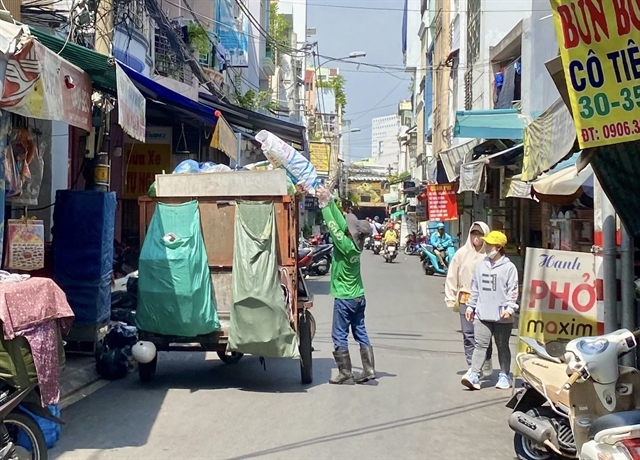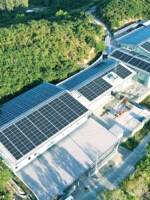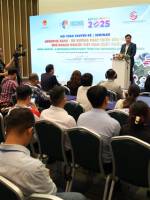
Việt Nam’s regulation on sorting household waste at source, introduced under the 2020 Law on Environmental Protection and effective since January 1, 2025, was expected to reshape disposal habits and reduce landfill pressure. Yet after eight months, implementation has revealed significant challenges.
According to the Ministry of Agriculture and Environment, Việt Nam currently generates around 69,400 tonnes of household solid waste per day, with an overall treatment rate of 91 per cent. Urban areas produce 37,250 tonnes daily, with a treatment rate of 97.28 per cent, while rural areas generate 32,150 tonnes with a treatment rate of 80.5 per cent.
The proportion of waste going to landfills has fallen to 59.32 per cent, down 30 per cent from 2012. Hà Nội produces about 7,300 tonnes of waste each day, and HCM City about 14,000 tonnes, together accounting for 23 per cent of the national total.
At a regular press briefing on September 4, Hồ Kiên Trung, Deputy Director of the ministry’s Environment Department, reported that only 32 of 63 cities and provinces have piloted household waste sorting. In many rural areas, households continue to handle waste themselves, using it as animal feed or bedding or through burial and open burning.
The main obstacle, Trung said, is the lack of synchronised infrastructure across all stages: sorting, collection, transportation and treatment. In particular, the system for recycling and processing food and organic waste, which accounts for 50–60 per cent of total household waste, is still underdeveloped, leaving social resources underutilised.
Another problem is that the fines for polluters have not been fully enforced. Fees for collection, transport and treatment remain inaccurately assessed and insufficiently collected, discouraging private-sector investment.
Public awareness is also uneven. Some local authorities and mass organisations have yet to fully recognise the importance of waste sorting, while communication campaigns have not been strong enough to change household habits.
“This is the decisive factor in whether waste sorting succeeds or fails, and the responsibility lies with local authorities,” Trung stressed.
Experts share the view that awareness remains a major barrier. A survey by TGM Research found that while environmental awareness is gradually improving, young people aged 15–24 show relatively little interest in waste sorting.
Professor Đặng Thị Kim Chi, Vice President of the Việt Nam Association for the Conservation of Nature and Environment, argued that waste sorting cannot be pursued in a forced manner. Instead, it requires comprehensive solutions from infrastructure and technology to financial mechanisms and supportive policies. She emphasised the proactive role of local governments, alongside efforts to raise public awareness.
“I expect stronger engagement from local authorities, but at the same time the State must invest and design appropriate mechanisms and policies to ensure that collection and treatment after sorting are carried out effectively,” she said.
Looking ahead, Trung said that between 2025 and 2026 the ministry will refine legal frameworks and technical guidelines on solid waste management, review shortcomings for amendment and issue national technical standards on landfills.
The ministry is also advising the Government to submit a resolution to the National Assembly on strengthening environmental policy and law enforcement. This resolution would allow budget restructuring to focus investment on essential infrastructure such as modern, eco-friendly systems for waste collection, sorting, transport, recycling and treatment. Local authorities would be required to include these projects in their medium-term public investment plans for 2026–2030.
“Provinces must move quickly to invest in synchronised infrastructure, from sorting and collection to transport and treatment, in line with provincial master plans after consolidation, once the Government and National Assembly approve medium-term investment projects for 2026–2030. At the same time, communication efforts must be intensified to mobilize society-wide participation in environmental protection,” Trung said.
(VNS)




